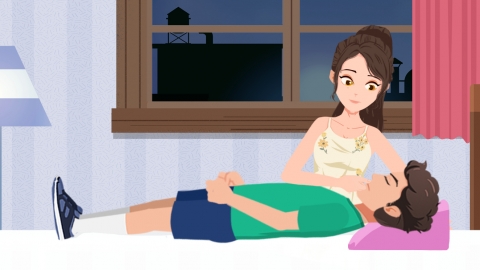What are the causes of neurogenic reflex syncope?
Generally, neuroreflexive syncope may be caused by factors such as sudden postural changes, intense emotional fluctuations, carotid sinus syndrome, micturition syncope, and deglutition syncope. It is recommended to seek timely medical attention, identify the underlying cause, and then receive symptomatic treatment under a doctor's guidance. Detailed analysis is as follows:

1. Sudden Postural Change: Standing up quickly from a lying or squatting position causes blood to pool in the lower limbs due to gravity, temporarily reducing cerebral blood supply and triggering syncope accompanied by visual darkening and dizziness. Symptoms usually resolve rapidly when lying down. Slow down movements when standing up—sit up first and pause briefly before standing—to avoid abrupt postural changes. Regular, appropriate physical activity can also enhance vascular regulatory capacity and reduce episodes.
2. Intense Emotional Fluctuations: Extreme fear, anxiety, and other emotional stimuli can overstimulate the vagus nerve, causing bradycardia and vasodilation, which reduce cerebral blood flow and lead to syncope accompanied by pallor and cold sweats. Learning to regulate emotions, avoiding intense emotional stimuli, and immediately sitting or lying down upon feeling unwell, combined with deep breathing to stabilize one's condition, can help reduce the risk of syncope.
3. Carotid Sinus Syndrome: Excessive sensitivity of the carotid sinus can lead to reflex bradycardia and hypotension when stimulated by tight collars or head turning, often causing syncope after neck compression. Wearing loose-collared clothing, avoiding sudden head movements or neck pressure, and using medications such as atropine sulfate tablets, midodrine hydrochloride tablets, or ephedrine nasal drops under medical guidance can help regulate heart rate and blood pressure and reduce reflex responses in patients with frequent episodes.
4. Micturition Syncope: A sudden drop in intra-abdominal pressure during urination can reflexively cause vasodilation and reduced cerebral blood supply, leading to syncope often occurring when getting up at night to urinate, accompanied by transient loss of consciousness. When urinating at night, sit up for a moment before standing, avoid holding urine, urinate slowly, install handrails in the bathroom to prevent falls, and patients with frequent episodes may take midodrine hydrochloride tablets under a doctor's guidance for prevention.
5. Deglutition Syncope: Swallowing actions may stimulate pharyngeal nerves, triggering vagal reflexes that cause bradycardia and hypotension, resulting in syncope, often during rapid eating or swallowing hard foods. Eating slowly and chewing thoroughly, avoiding excessively cold, hot, or hard foods to reduce pharyngeal irritation, and undergoing vagotomy to sever hyper-sensitive nerve branches in patients with frequent episodes can help reduce reflex syncope occurrences.
Daily attention to lifestyle details and avoiding potential triggers such as sudden postural changes or neck compression are important. Engaging in appropriate physical exercise can enhance physical fitness and vascular regulation. If syncope occurs frequently, it is advisable to record the circumstances and triggers of each episode to assist doctors in identifying the underlying cause and developing targeted preventive measures to reduce the risk of recurrence.










